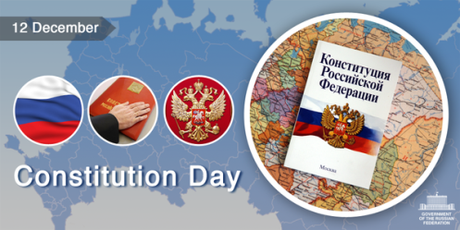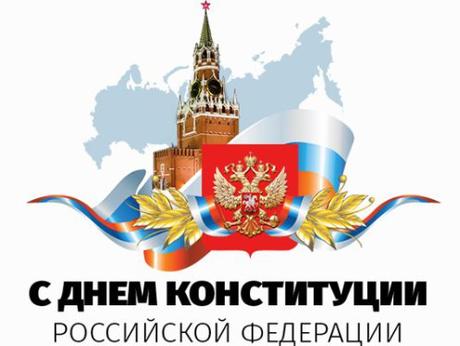
The twelfth day of December is the Day of the Russian Constitution (День Конституции России) and is a national holiday albeit a normal day for most Russian citizens. In schools and factories, teachers and workers organize celebrations with the assistance of President Putin’s ruling “United Russia” (Единая Россия) party.
For the Russian opposition however, it is a day to highlight their views that the government no longer rules by constitutional authority. Protests across the country were small and government troops were out in force.
From Moscow, Sasha Sotnik reports on a small protest where 30 peaceful protesters were arrested along Pushkin Square:
Russia’s “Apple” party (Яблоко) was among the opposition groups protesting. Members of Apple attempted to distribute flyers with highlighted portions of the Constitution that have been violated by the current government, but Interior Ministry police quickly confiscated the materials.
There are those who believe that Yeltsin was a puppet of the USA, and that changes to the Constitution by current president Vladimir Putin have been done to protect the Russian people from American domination.
Despite such beliefs, the Constitution of the Russian Federation was adopted in 1993 by the Russian people themselves. The Constitution was drafted from documents submitted by the Constitutional Commission of the Supreme Soviet. A Constitutional Conference, convened under the appointment of then-president Yeltsin, worked with the legislative branches on drafts and final submissions.
On 12 December in 1993, Russian citizens voted to adopt the new constitution with a 54.8 percent approval via national election. Seven days after the election ratified the new constitution, President Yeltsin signed a decree to mark 12 December as a national holiday.

During Mr. Putin’s rule, which began in 2000, there has been significant declines in personal freedoms and democratic institutions. Today the term “democracy” is linked to supposed American meddling in Russian affairs.
In the meantime, opposition parties have been hindered from participation in elections, the Kremlin appoints many regional officials who have no accountability to local voters, and the media is under almost complete control of the Kremlin.
Additional Reading:
Russian Federation Constitution, Russian language version
Russian Federation Constitution, English language version

